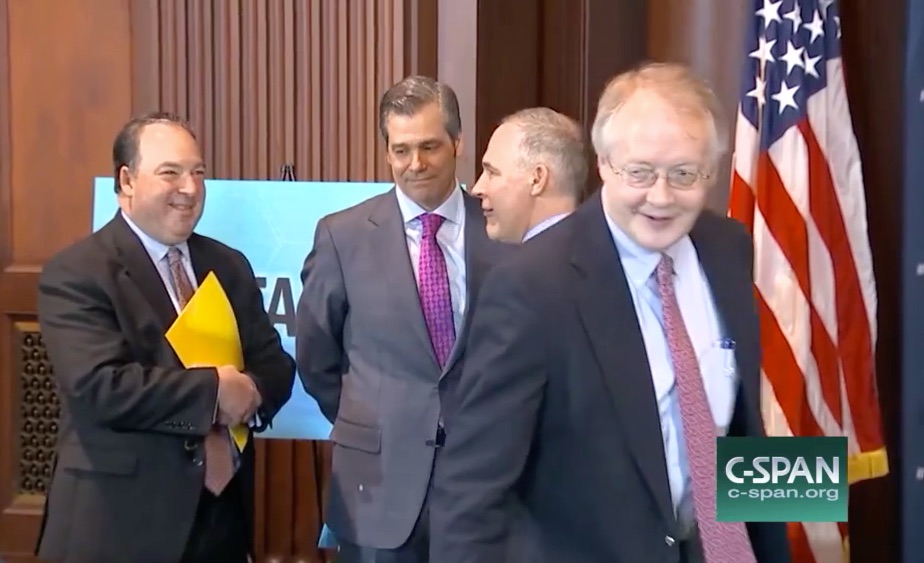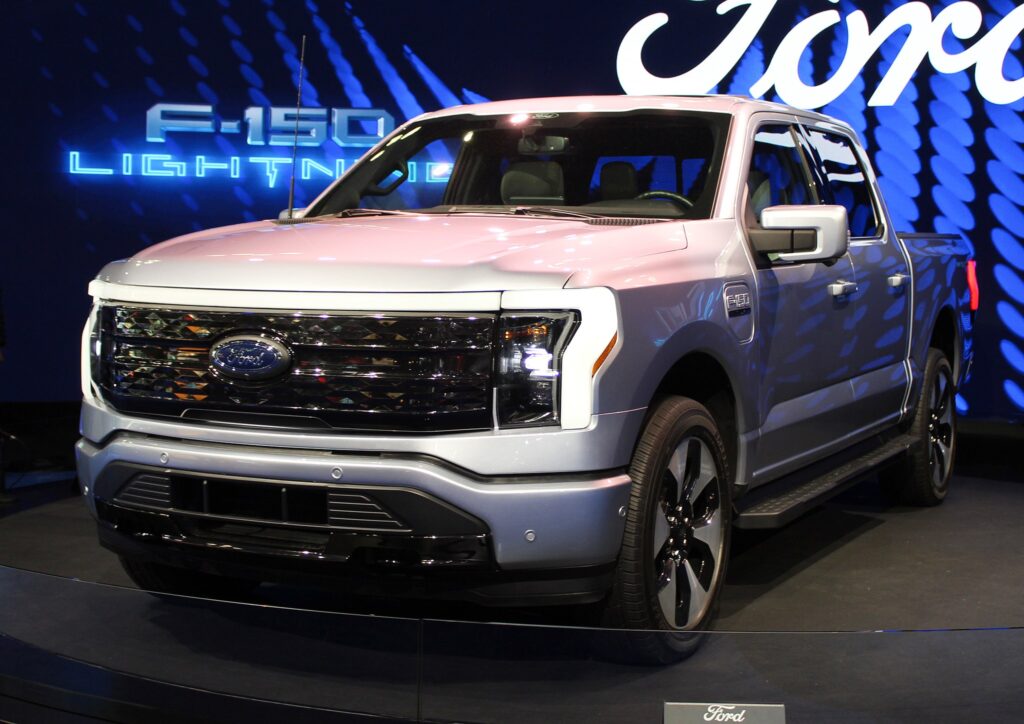It’s been a bumpy ride for the auto industry in the ongoing battle over clean car regulations and California’s authority to set stricter rules for vehicle emissions. The industry is now divided as several automakers reached a deal over the summer with California to embrace a cleaner emissions standard through 2026, while a coalition of other carmakers recently backed the Trump administration in a lawsuit challenging the administration’s withdrawal of California’s waiver allowing it to set tougher tailpipe pollution controls. That coalition, which includes auto giants like General Motors and Toyota, claims to support “year over year increases in fuel economy” but also opposes California’s authority to set tailpipe emissions standards aligned with that increase.
The announcement by the Toyota and General Motors group was “not surprising, but it’s disappointing,” according to Don Anair, deputy and research director for the Clean Transportation program at Union of Concerned Scientists.
Anair told DeSmog that the companies were putting profit before good policy.
“The auto industry was rescued during the recession, and agreed to standards to make cars cleaner, but now they’re trying to weasel out of the promises they’ve made, and to the commitments they’ve made to customers, too,” said Anair. “Many automakers are falling back on a familiar, bad pattern of intransigence, using the same tactics they used to try and avert smog controls, seat belts, and air bags. If the Trump administration gets their way, it’s going to be bad for drivers and for the climate, and the automakers who have sided with Trump shouldn’t get credit for caring about climate when they’re enabling the federal government to take us backwards.”
The Automakers’ Motives
A closer look at the automakers’ recent history and financial disclosures reveals their motivation.
Several carmakers actually mention in their most recent 10-K forms (annual report) that producing more status quo, less-efficient vehicles is critical for their financial performance. GM, for example, notes that its profitability depends upon selling more (gas-guzzling) trucks and SUVs: “Any shift in consumer preferences toward smaller, more fuel-efficient vehicles…could weaken the demand for our higher margin vehicles.”
Ford makes a similar admission tying its profitability to selling more large gas-guzzlers: “A shift in consumer preferences away from larger, more profitable vehicles (including trucks and utilities) at levels beyond our current planning assumption — whether because of spiking fuel prices, a decline in the construction industry, government actions or incentives, or other reasons — could result in an immediate and substantial adverse effect on our results and financial condition.”
Ford is notably one of the four automakers that agreed to follow California’s emissions reduction standard, but it apparently has qualms about complying with the state’s zero emission vehicle mandate and meeting the higher clean car standards adopted under the Obama administration, according to disclosures in its 2018 10-K.
Toyota, one of the big names backing the Trump administration in the clean car standards legal fight, has made poor progress relative to its peers in terms of improving fuel economy and reducing emissions across its fleet. Despite Toyota’s claim that it supports “year-over-year improvements in fuel economy standards,” automotive trends data from 2012-2017 show Toyota as the only automaker that did not improve in fuel economy over those five years. Toyota’s fuel economy actually dropped slightly while that of other manufacturers increased.
GM and Fiat Chrysler, companies that are also siding with a federal government intent on weakening fuel economy and emissions standards, ranked at the bottom on measures of fuel economy and CO2 emissions (though their measures did improve, unlike Toyota’s).
Automakers’ Quiet Campaign to Roll Back Clean Car Standards
As DeSmog has reported extensively, the oil industry has exerted considerable influence in the Trump administration’s proposal to roll back the Obama-era clean car standards and yank California’s waiver. The auto industry initially also lobbied the Trump administration for looser tailpipe controls, only to then write to the President cautioning against a drastic rollback and clarifying their support for a “unified standard that both achieves year-over-year improvements in fuel economy and facilitates the adoption of vehicles with alternative powertrains.”
The industry’s lobbying, mostly coordinated through the the Alliance for Automobile Manufacturers (Auto Alliance) trade group, has at times relied on open letters to the President, meetings with the administration and agency heads, and even outright climate denial. To briefly recap:
- In November 2016, two days after the 2016 election, the Auto Alliance president Mitch Bainwol sent a letter to Trump’s transition team urging significant reforms of fuel economy and greenhouse gas emissions standards as part of the mid-term review of the standards adopted under Obama in 2012. The Alliance argued the Obama standards posed “steeper compliance requirements” for model years 2017-2025 and that consumers weren’t buying the most fuel-efficient, more expensive vehicles. The Alliance also argued that harmonization was needed between greenhouse gas standards (administered by the Environmental Protection Agency, EPA) and corporate average fuel economy (CAFE) standards (set by the National Highway Traffic Safety Administration, NHTSA).
- The Auto Alliance sent a similar letter to then-EPA head Scott Pruitt in February 2017 requesting he withdraw the greenhouse gas standards for vehicles manufactured for 2022-2025. Bainwol explained that the auto industry would need to spend at least $200 billion by 2025 to comply, writing: “manufacturers will have to rely on much more expensive electrified technologies (i.e. hybrids and plug-ins), driving up vehicle prices and depressing auto sales.”
- In February 2018, the Auto Alliance submitted a questionable report, which contained misleading information and climate science denial, to NHTSA as part of its official commentary during the rulemaking process. The report, conducted by an industry-tied consulting firms, was meant to support the auto industry’s position for lowering the clean car standards.
Beyond these actions by the Auto Alliance, the main U.S. trade association representing the auto industry, a recent analysis has found that car companies may not be as supportive of emissions reduction and environmental protection as they claim to be.
According to a report released last month by InfluenceMap, first reported by the Guardian, automakers have been among the most influential corporations lobbying against climate policies in the four years since the Paris Agreement was adopted. According to the report, “Automotive companies also feature prominently in the list of negative influencers, led by Fiat Chrysler, Daimler, and BMW. This is the result of a strategy to control and delay the regulatory agenda on vehicle emissions and electric vehicles (EVs). This may now hinder their ability to adapt quickly to any acceleration of emissions and EV rules with a sudden shift in climate politics globally (e.g. in the U.S. following the 2020 elections).”
Given the data on auto sales, such a strategy opposing stricter emissions regulations and programs like California’s zero emission vehicle mandate may not be that surprising. According to an Auto Alliance fact sheet, standard gasoline-powered cars make up 95 percent of vehicle registrations, and about 93 percent of new vehicle purchases.
The auto industry may be divided on the Trump administration’s fight with California. But the bottom line is that automakers overall seem most concerned with protecting their bottom line, even if it compromises public health and climate progress.
Main imagine: After shaking hands with Myron Ebell of the Competitive Enterprise Institute (CEI), then EPA Administrator Scott Pruitt talks to Mitch Bainwol of the Auto Alliance and John Bozella of the Global Automakers trade group. Credit: C-SPAN
Subscribe to our newsletter
Stay up to date with DeSmog news and alerts






